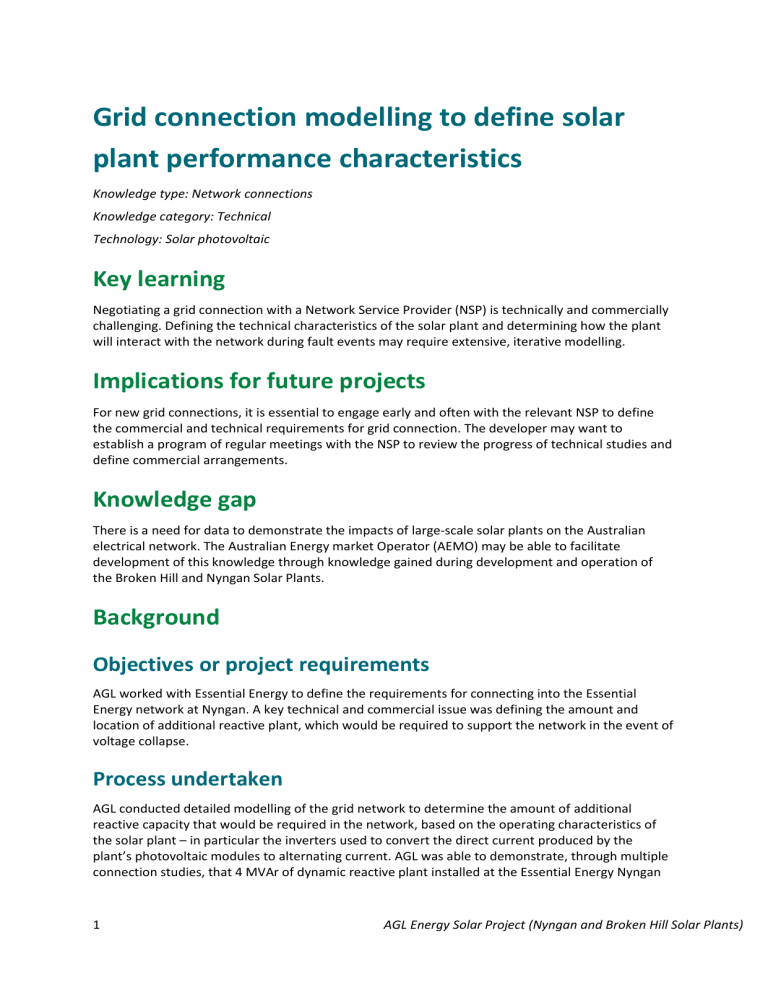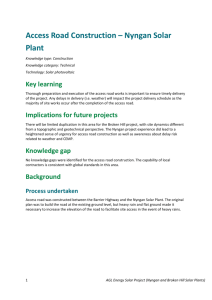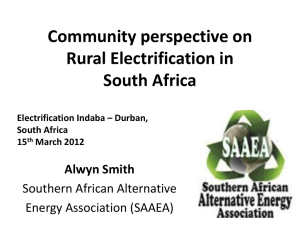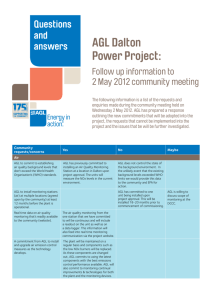DOC 133KB

Grid connection modelling to define solar plant performance characteristics
Knowledge type: Network connections
Knowledge category: Technical
Technology: Solar photovoltaic
Key learning
Negotiating a grid connection with a Network Service Provider (NSP) is technically and commercially challenging. Defining the technical characteristics of the solar plant and determining how the plant will interact with the network during fault events may require extensive, iterative modelling.
Implications for future projects
For new grid connections, it is essential to engage early and often with the relevant NSP to define the commercial and technical requirements for grid connection. The developer may want to establish a program of regular meetings with the NSP to review the progress of technical studies and define commercial arrangements.
Knowledge gap
There is a need for data to demonstrate the impacts of large-scale solar plants on the Australian electrical network. The Australian Energy market Operator (AEMO) may be able to facilitate development of this knowledge through knowledge gained during development and operation of the Broken Hill and Nyngan Solar Plants.
Background
Objectives or project requirements
AGL worked with Essential Energy to define the requirements for connecting into the Essential
Energy network at Nyngan. A key technical and commercial issue was defining the amount and location of additional reactive plant, which would be required to support the network in the event of voltage collapse.
Process undertaken
AGL conducted detailed modelling of the grid network to determine the amount of additional reactive capacity that would be required in the network, based on the operating characteristics of the solar plant – in particular the inverters used to convert the direct current produced by the plant’s photovoltaic modules to alternating current. AGL was able to demonstrate, through multiple connection studies, that 4 MVAr of dynamic reactive plant installed at the Essential Energy Nyngan
1 AGL Energy Solar Project (Nyngan and Broken Hill Solar Plants)
Substation would be sufficient to stabilise network voltage in the event of a fault on the network between Nyngan and Dubbo (refer Figure 1).
Supporting information
Figure 1 shows the sub-transmission network supplying Dubbo, Nyngan and Cobar from
TransGrid’s Wellington 330/132kV substation. The diagram shows locations and capacities of substations and the transmission and sub-transmission lines owned and operated by TransGrid and
Essential Energy. Cities and towns are shown.
Figure 1 – Existing Essential Energy western area sub-transmission network.
Source: Essential Energy, 2012. Consultation Information Report – Augmentation of Electricity Supply to Dubbo and the Western Area of NSW.
2 AGL Energy Solar Project (Nyngan and Broken Hill Solar Plants)







